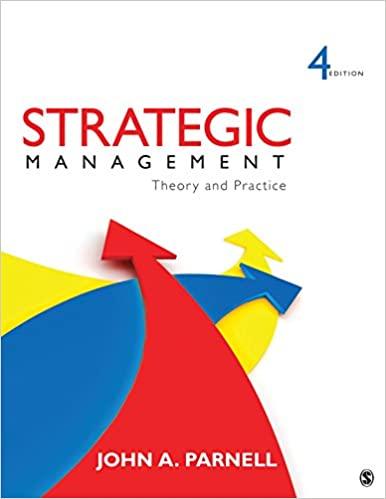Question
what are the pros and cons of learning online from an individual and social perspectives? Convincing Information and Analysis Formal scholarly essays are constituted so
what are the pros and cons of learning online from an individual and social perspectives? Convincing Information and Analysis
Formal scholarly essays are constituted so that they are objectively true. Objectivity is in contrast to other forms of writing, such as a subjective essay written from the author's idiosyncratic individual biases, or an exercise in rhetoric. Rhetoric is writing meant primarily to persuade rather than to inform, and has a long tradition in Western classical scholarship. A formal scholarly essay, however, must appeal to the intellect rather than the passions. A well-written scholarly work is one where every statement, and every sentence is somehow proven to be true to the reader.
To offer this kind of objective 'proof' when you write your essay you really have only a handful of possibilities. These are as follows:
- Use logical argument: Logic is the science of the formal principles of reasoning that demonstrates a sequence of thoughts that lead to a valid thought. For example, the statement: "All hippies have long hair", and the statement that "John is a hippy", forces, through logic, to state that "John has long hair". In your own use of logic, you may have to present a somewhat muted version of this type of reasoning, but the "Most hippies ... John is ... John most likely has" logic still has validity.
- Use examples: In your essay, particularly if it involves abstract conceptualizations, 'truth' can often best be established by offering examples of what insight you are offering the reader. Examples can be weak or strong supporters of your insight, depending upon how generalizable they are. If, for instance, I write "rear-engined cars are considerably more dangerous than front-engined cars" I can offer an analysis of the pendulum-like weight distribution of rear-engined cars versus other configurations, but I can also write that: "Rear-engined Porsche 911s are frequently known to be in single-vehicle accidents" I have sort of offered 'proof'. Whether or not that 'proof' is acceptable to the reader or not, depends on a number of factors, including whether the rear suspension of the Porsche 911 was to blame, the accident statistics are believable, and so on. One thing that examples do accomplish, however, is that they 'concretize' the abstract concept so that a reader can envision and understand it. Using examples is often the best way to explain a concept. Using examples is really just about using the principles of deductive and inductive reasoning. Inductive reasoning takes an example and makes a generalization from it. Its credibility relies on how representative the example is of other examples. Deductive reasoning would apply a generalized idea, such as an abstract concept (e.g. rear-engined cars) and apply it to a specific example (e.g. the Porsche 911).
- Cite an outside authority: Most interesting scholarly papers attempt to add to the existing body of knowledge, and do so by constructing their knowledge on the foundation of previous knowledge. This is how progress happens in many instances, just as technological innovation tends to build on past technologies. If you are to make a case for an insight, analysis, or point in your essay, you can establish its credibility by citing other credible authors and their writings. This requires, however, that the sources you cite are considered, and are seen to be considered, truthful and reliable. What constitutes a valid source is described in the links listed below: "Evaluation During Reading" and "Annotated Bibliography". It is sufficient to use a citation format - such as APA required in this course (though other formats are as good, and arguably better) to establish this type of substantiation in your essay.
The one thing you should ask yourself, after writing every single statement and sentence, is: "Did I offer convincing substantiation of this point to the reader?" You really need to do this for your entire essay for it to fulfill the requirements of good scholarship. Keep in mind too, that most readers will tend, out of simple human nature, to disbelieve everything you say if they should stumble across one thing you say that they think is untrue.
Conclusion
Every scholarly essay requires an introduction and a conclusion, even if these sections are not overtly labelled as such. The conclusion really is a summation of what was said, proven, and/or discovered, in the body of the essay relative to the thesis question. The conclusion needs to restate the thesis question in some manner (that is, it need not and perhaps should not be verbatim), and say, in concentrated form just what the essay said about it. One common mistake is to introduce new ideas in the conclusion. You should avoid this. As a general rule, you as the writer should only include in the conclusion what is found in the essay itself. The only exception to this is that it is sometimes appropriate to indicate further areas of inquiry and study in the conclusion. The common saw about the structure of a good speech is that it "tells the audience what you are going to tell them; tells them; tells the audience what you told them." The principles of a good essay are quite similar.
Step by Step Solution
There are 3 Steps involved in it
Step: 1

Get Instant Access to Expert-Tailored Solutions
See step-by-step solutions with expert insights and AI powered tools for academic success
Step: 2

Step: 3

Ace Your Homework with AI
Get the answers you need in no time with our AI-driven, step-by-step assistance
Get Started


